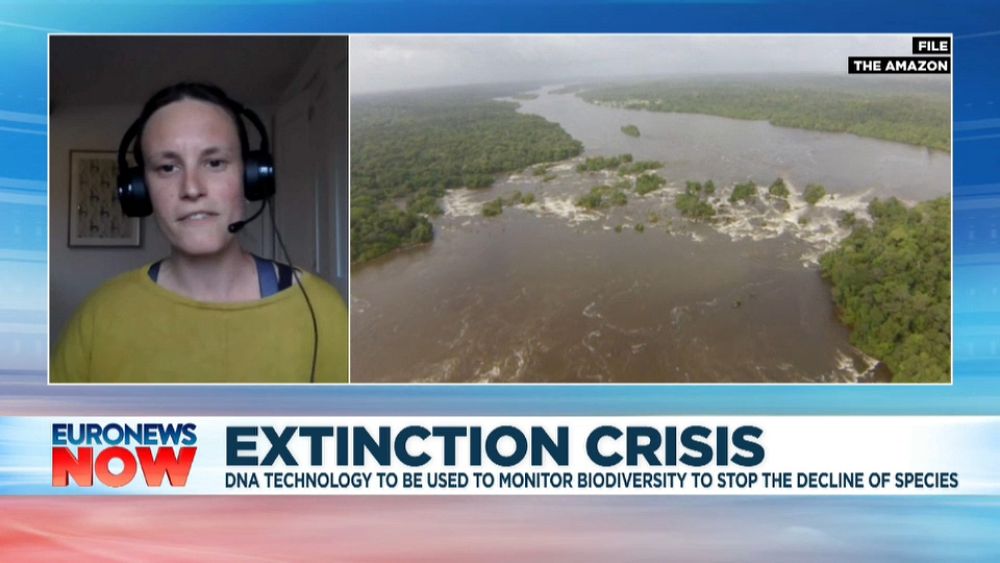DNA will be used to slow the decline of species from bacteria to blue whales as part of a new project launched on June 17.
The International Union for Conservation of Nature and NatureMetrics is sending sample kits to parts of the world most threatened by climate change and overdevelopment, including the Amazon, the Niger Delta, and the Ganges rivers.
Kat Bruce, the founder and chief technology officer at NatureMetrics, said the project would “change the state of our knowledge about nature.”
“The beauty of this technology, where we’re basically analysing the sort of fingerprints the animals leave behind in the environment is that the sampling is so easy that anybody can do it.”
Using the kits is as easy as drawing water into a syringe, screwing it onto a filter, and pushing the water through it, she said.
“The DNA and the material get stuck inside the filter. And that’s just sent to the lab for analysis.”
What will be done with the data?
“It’s really key right now that we have data that is available for research and for conservation at the sorts of scales that will allow us to make decisions about how to invest in the natural world to address the biodiversity crisis,” she said.
The organisation will make the data freely available for researchers and conservationists.
“We understand we’re in this extinction crisis – we’re in the middle of mass extinction,” she said, adding that very little was known about what species live where in the world.
Even in the UK, detailed data only exist for about 5% of the species that live there, Bruce said.
“If we’re genuinely going to try and make a difference and […] change the will [to] bend the curve on biodiversity loss, we have to know where we’re starting from so that we can measure the changes that are happening,” Bruce said.
“And we know whether the actions that we’re taking are actually making a difference or not.”
To listen to the full interview please click on the player icon above.






